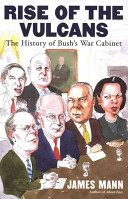|
|
Books by and about 2020 presidential candidates |
|
Crippled America,
by Donald J. Trump (2015) |
United,
by Cory Booker (2016) |
The Truths We Hold,
by Kamala Harris (2019) |
Smart on Crime,
by Kamala Harris (2010) |
Guide to Political Revolution,
by Bernie Sanders (2017) |
Where We Go From Here,
by Bernie Sanders (2018) |
Promise Me, Dad ,
by Joe Biden (2017) |
Conscience of a Conservative,
by Jeff Flake (2017) |
Two Paths,
by Gov. John Kasich (2017) |
Every Other Monday,
by Rep. John Kasich (2010) |
Courage is Contagious,
by John Kasich (1998) |
Shortest Way Home,
by Pete Buttigieg (2019) |
The Book of Joe ,
by Jeff Wilser (2019; biography of Joe Biden) |
Becoming,
by Michelle Obama (2018) |
Our Revolution,
by Bernie Sanders (2016) |
This Fight Is Our Fight,
by Elizabeth Warren (2017) |
Higher Loyalty,
by James Comey (2018) |
The Making of Donald Trump,
by David Cay Johnston (2017) |
|
Books by and about the 2016 presidential election |
|
What Happened ,
by Hillary Clinton (2017) |
Higher Loyalty ,
by James Comey (2018) |
Trump vs. Hillary On The Issues ,
by Jesse Gordon (2016) |
Hard Choices,
by Hillary Clinton (2014) |
Becoming ,
by Michelle Obama (2018) |
Outsider in the White House,
by Bernie Sanders (2015) |
|
|
Book Reviews |
(from Amazon.com) |
(click a book cover for a review or other books by or about the presidency from Amazon.com)
|
Rise of the Vulcans
The History of Bush's War Cabinet
by James Mann

(Click for Amazon book review)
BOOK REVIEW by OnTheIssues.org:
The title of this book sounds like something from Star Trek, but in fact it's an insider political term. The "Vulcans" are a group of neoconservative Republicans who rose to power under Reagan and Bush Sr., and heavily populated George W. Bush's cabinet. The term comes from a statue of the god Vulcan which was displayed prominently in Condi Rice's home town, where the group met early on.
The Vulcans comprised six members: Condi Rice, Dick Cheney, Donald Rumsfeld and Colin Powell, all of whom have excerpts on our website; plus Richard Armitage and Paul Wolfowitz, who don't have excerpts because they never rose to Cabinet rank. Pres. George W. Bush is excluded from the Vulcan list (but not from the book!) because, according to the author, "Bush himself had not worked directly on foreign policy before 2001… when it came to foreign policy, George W. Bush had no past. He was not, in that sense, a Vulcan." (pp. xvii-xviii). Vulcans, by this definition, had a long development from within the Cold War context to an evolving post-Cold War view.
The purpose of this book is to examine the history and the world views of the six Vulcans (p. xv), and how it affected US foreign policy. Those world views include:
- Pre-emptive war (which Bush cited as the rationale for invading Iraq in 2002)
- Overwhelming force (which became known as "The Powell Doctrine")
- Maintaining the US as the world's sole superpower (which became known negatively as "The World's Policeman")
- The Global War on Terror as an ongoing rationale for numerous invasions, not just Iraq and Afghanistan.
|
Powell famously disagreed with Rumsfeld on that last item, recommending against numerous military actions where Rumsfeld recommended in favor. Condi Rice eventually sided with Rumsfeld and eventually replaced Powell as Secretary of State -- in large part because of the disagreement on Vulcan ideology.
This book is a must-read for anyone interested in Bush's underlying rationale for the Iraq War. Bush himself did not form nor articulate his own vision -- it was the Vulcan vision that Bush implemented.
-- Jesse Gordon, editor-in-chief, OnTheIssues.org, jesse@OnTheIssues.org, Nov. 2011
| OnTheIssues.org excerpts: (click on issues for details)
|
Education
Donald Rumsfeld: 1970: First suggestion of tuition tax credit (school choice).
|
Families & Children
Colin Powell: 1990s: Focused on kids, not think tanks.
|
Foreign Policy
Colin Powell: 1980s: Chief advocate in Congress for supplying the Contras.
Condoleezza Rice: Considered as Clinton's ambassador to Russia.
|
Homeland Security
Colin Powell: 1980s: Supported Reagan's Strategic Defense Initiative.
Richard Nixon: 1970: Developing ABM system led to ABM treaty with USSR.
Ted Kennedy: 1970: Enlisted scientists to dispute ABM system.
|
Principles & Values
Donald Rumsfeld: 1973-4: Advised Nixon politically during Watergate scandal.
|
War & Peace
Dick Cheney: 1991: None in Bush administration wanted to push to Baghdad.
Donald Rumsfeld: 1971: Anti-war advocate: get out of Vietnam quickly.
Donald Rumsfeld: 1971: Focus on post-war Indochina peace & reconstruction.
|
Welfare & Poverty
Donald Rumsfeld: 1969: "Justice for the poor" as head of anti-poverty agency.
|
The above quotations are from Rise of the Vulcans
The History of Bush's War Cabinet
by James Mann.
2010 Election Analysis:
- Against All Odds, by Scott Brown
- The Obamians, by James Mann
- Power to the People, by Gov. Tommy Thompson
- 2010: Take Back America, by Dick Morris
- 100 Innovative Ideas for Florida's Future, by Marco Rubio
- Courage and Consequence, by Karl Rove
- American Conspiracies, by Gov. Jesse Ventura
- Game Change, by John Heilemann and Mark Halperin
- The FairTax Book, by Neal Boortz and Rep. John Linder
- The Test of our Times, by Gov. Tom Ridge
- Saving Freedom, by Sen. Jim DeMint
- Giving, by Pres. Bill Clinton
- Going Rogue, by Gov. Sarah Palin
- Slouching Towards Gomorrah, by Robert Bork
- Abortion and the Conscience of a Nation, by Pres. Ronald Reagan
- Third World America, by Arianna Huffington
- Hopes and Prospects, by Noam Chomsky
- Rise of the Vulcans: The History of Bush's War Cabinet, by James Mann (March 2004)
- Earlier election analyses
|
|












